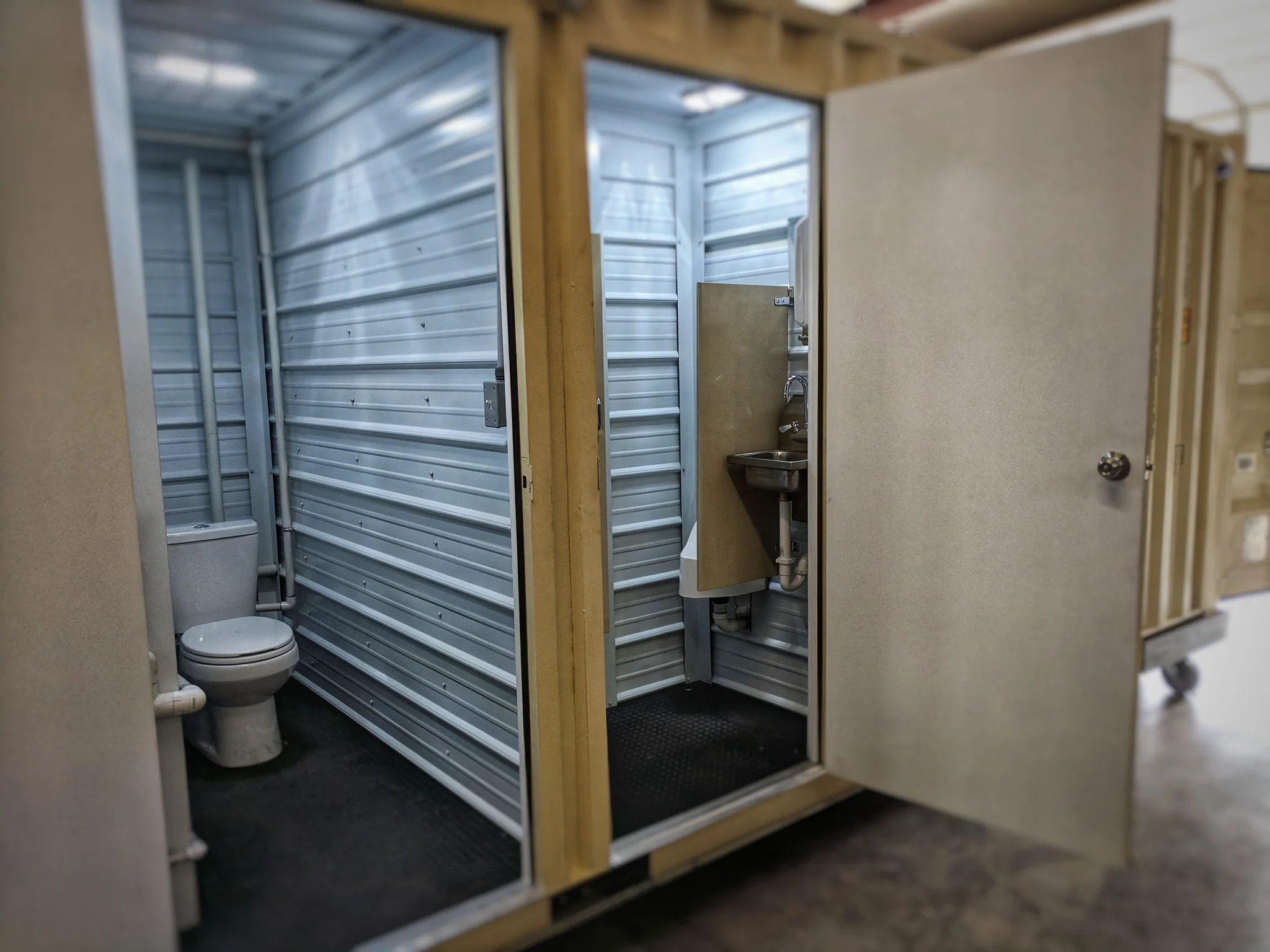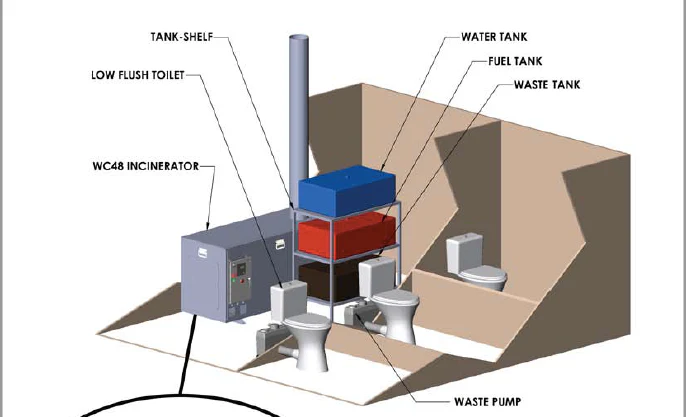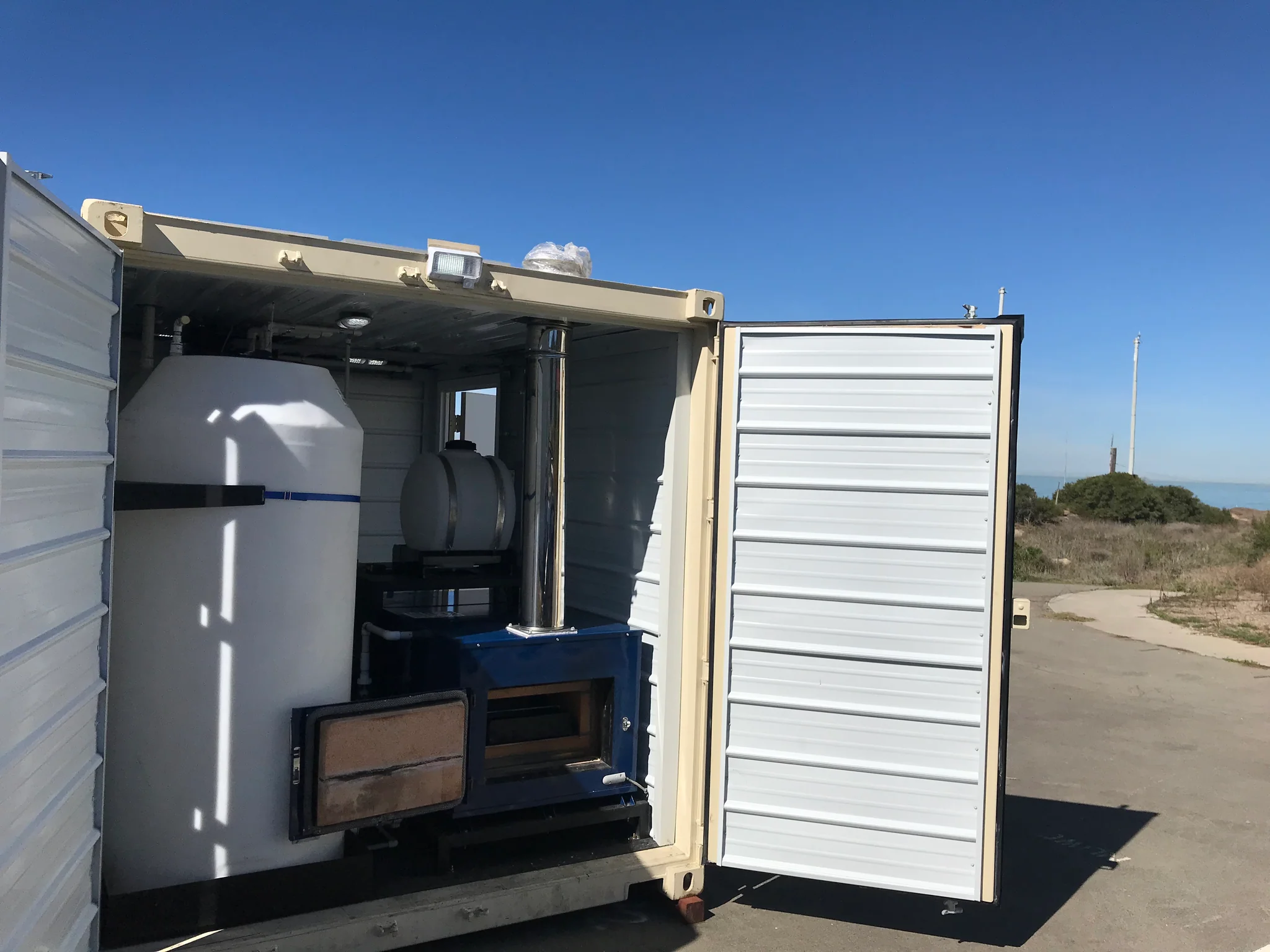A groundbreaking collaboration between the Cannon Foundation, the George Henry White Center, and EcoJohn is enabling a new waste management technology to be built at the Center, promising hope for many local organizations and individuals.
“The rural and remote location of the George Henry White Center mirrors that of many residents of Bladen and Columbus counties, as well as other parts of North Carolina,” explained Project Leader Vince Spaulding. “Access to municipal water, sewage or even electricity may be difficult. Many people are forced to use septic tanks, or other systems, to handle bathroom waste. This can contaminate water, land and air quality.”
A new technology, developed by the EcoJohn company, uses a central incineration unit to safely and efficiently transform the liquid and solid waste into safe, sanitary ash suitable for fertilizer or other purposes.
“We approached the Cannon Foundation to help us fund this system,” explained Milton Campbell, Ph.D. “They saw the potential for a triple-bottom-line project that could give hope to our entire area.”
“EcoJohn understands the unique aspect of the George Henry White Center, which is uplifting lives through classes and training,” said company president, Stefan Johansson. “We decided to add our support to make this a destination where visitors can tour, inspect the system, learn about the benefits, and experience the comfort of an exterior restroom using the incineration of waste.”
“The finished restroom will have both a men’s and women’s room, each with a sink and several stalls. It will be climate-controlled for year-round comfort and usability. The central holding tank and incinerator will be viewable by visitors, to allow for a complete understanding of how it works.”
The project fits the Center’s goals of improving the economy, ecology and human capital of the area. “People, Profit and Planet are the three pillars of true growth,” explains Dr. Campbell. “We want to show that all three can be served.”
Schools, businesses and farmers will be welcomed to tour the Cannon/EcoJohn project. “We are just starting classes in entrepreneurship, through NC IDEA’s Ice House program, starting June 5,” Spaulding mentioned. “The EcoJohn system will allow the learners to have a case study right in our own backyard, to see how good environmental practices can be applied in a business setting.”
Another very popular series, the Landowner Lunch and Learn, funded by the Resourceful Communities “Creating New Economies Fund” grant, helped build the awareness of the need for technology that works for the rural and agricultural setting. “Family land is often lost to developers, and once it’s gone, it’s gone,” explained Wanda Campbell Clay, coordinator of the educational series. “We’re showing people how to keep their land and make income, so their children and grandchildren will be able to gain value from the same land, even after we’re gone.”
EcoJohn has been used by the United Nations to create environmentally-friendly restrooms for various global destinations, and by those doing disaster relief or construction in far-flung locations. Similar no-waste restrooms have been used in Antarctica, Navy bases, Alaska and other locations. EcoJohn's individual incinerator toilets are also used for cabins, RVs, campers, and off-grid uses. (www.ecojohn.com)
“Local contractors are helping us with the preparation of the concrete slab and the water, electric and propane hookups. We hope to debut the finished system by early summer,” said Mr. Ocie Jones, superintendent of the George Henry White Center.
If you would like to learn more about the George Henry White Center’s many classes and projects, please visit the website: www.ghwmemorialcenter.com. Registration for the Ice House Entrepreneurial Mindset training is going on now. Also, classes in Computer Skills, Electrical wiring and contracting, Health and Nutrition, and Land programs are all available.
(Media organizations: If you would like to cover the delivery and set up of the finished EcoJohn restroom unit to the GHW Center, please contact Kate Tsubata, 301-257-4243, or call the center at 910-445-0269.)









コメント